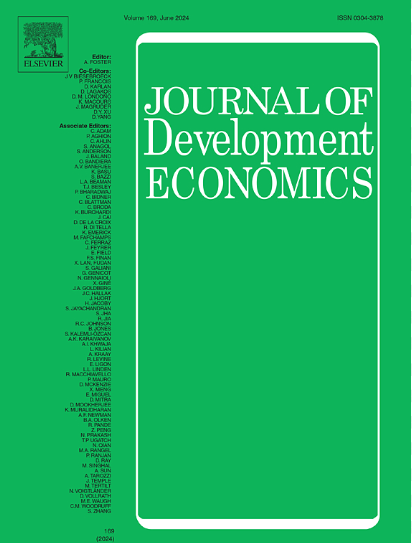Inside the black box of child penalties: Unpaid work and household structure
IF 4.6
1区 经济学
Q1 ECONOMICS
引用次数: 0
Abstract
The adverse effects of motherhood on market work are a persistent source of gender inequality. Using high-frequency data from Mexico, we unveil the dynamics of households’ time budgets around childbirth. Mothers’ disproportionate increases in unpaid work hours—which rise by more than 9 h per week more than men’s—offset their decreased labor supply. A 5-hour gender gap in total productive time originates after childbirth. Other women in the household, including girls, adjust their time allocation to care for the newborn significantly more than male household members, perpetuating gender roles. Through the participation of female family members in childcare, family structure emerges as a relevant factor determining parental time allocation, disproportionately benefiting men. The potential cost of outsourcing the added time burden on mothers represents 24% of household income.
在儿童惩罚的黑盒子里:无偿工作和家庭结构
母亲对市场工作的不利影响是性别不平等的持久根源。利用来自墨西哥的高频数据,我们揭示了家庭在分娩前后时间预算的动态。母亲的无偿工作时间不成比例地增加——每周比男性多增加9小时以上——抵消了她们减少的劳动力供应。总生产时间的5小时性别差距始于分娩后。家庭中的其他妇女,包括女孩,比男性家庭成员更多地调整她们照顾新生儿的时间分配,使性别角色永久化。通过女性家庭成员参与育儿,家庭结构成为决定父母时间分配的一个相关因素,对男性的好处格外大。外包给母亲的额外时间负担的潜在成本占家庭收入的24%。
本文章由计算机程序翻译,如有差异,请以英文原文为准。
求助全文
约1分钟内获得全文
求助全文
来源期刊

Journal of Development Economics
ECONOMICS-
CiteScore
8.30
自引率
4.00%
发文量
126
审稿时长
72 days
期刊介绍:
The Journal of Development Economics publishes papers relating to all aspects of economic development - from immediate policy concerns to structural problems of underdevelopment. The emphasis is on quantitative or analytical work, which is relevant as well as intellectually stimulating.
 求助内容:
求助内容: 应助结果提醒方式:
应助结果提醒方式:


